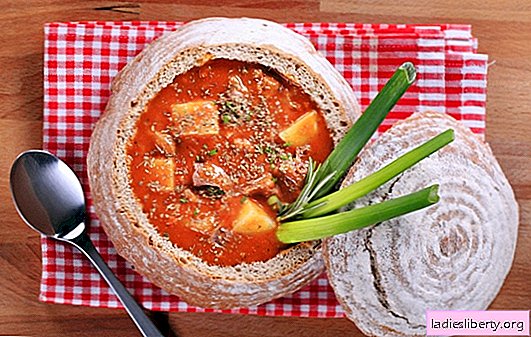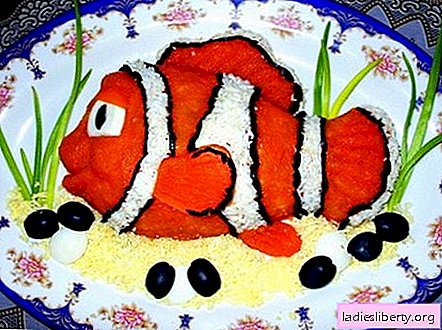
The more she tried to overcome the habit of anxiety and put an end to these thoughts, the worse she got. Over time, anxiety grew into panic attacks that forced Anna to stay at home and not go anywhere for several weeks. She could not concentrate on work, neglected her duties at home, and her marriage was bursting at the seams. In complete confusion and confusion, she turned to the therapist.
The first question that the doctor asked her seemed to her unexpected: "Who else in your family suffers from anxiety?"
Anna thought for a moment and answered: "My mother, grandmother, brother, nephew and aunt." It did not occur to her that anxiety could be transmitted from generation to generation!
But this is very common. Mother taught her daughter to think about death because her father died when Anna was very young. Her grandmother was so worried that she did not dare to talk with strangers. His brother was afraid of exams, his nephew was socially anxious, and his aunt was a restless and intrusive perfectionist.
Anxiety is not the only emotion that is passed down from generation to generation. Many negative feelings are inherited through family psychological trauma, parental behaviors, or childhood violence.
1. Anger
There are three types of unhealthy anger: aggressive, passive-aggressive, and suppressed anger. All of them can negatively affect the child. For example, if a father gets angry when turning to a scream, the child imitates such behavior or gets used to direct outbursts of anger towards himself. Parents must learn to express their anger assertively, openly asserting what they want, without trying to control, humiliate, or manipulate their children.
2. Shame
Parents' degrading comments: “You will never achieve anything” or “You are stupid” strike the heart. Unfortunately, such tactics are common in families where the child is required to comply with unrealistic high standards. The child adopts this and begins to approach other people with the same standard. Countering shame is acceptance and forgiveness.
3. Wines
Feeling guilty is a long tradition in many families. Hints: “If you loved me, you would wash the dishes” or “A daughter who takes care of her mother will often call her” are examples of how a parent uses guilt as a lever to put pressure on the child. This is a manipulation. It’s better to say directly what you want and explain your desire. Do not make a person feel uncomfortable if he does not want to fulfill your request.
4. helplessness
The child gets used to playing the role of the victim. A parent uses his past injuries to justify misbehavior: "I drink every day because your mother left me" or "I was abandoned in childhood, so I act like crazy." Children are always ready to justify parents by clutching at any straw. Having processed childhood trauma, you do not have to recreate it again and again, remaining a victim of circumstances.
5. Anxiety
Anxiety is a necessary and useful emotion that signals the approach of a threat, like a fuel level sensor in a car. However, excessive anxiety makes you suffer. The best way to deal with anxiety is through meditation and awareness of your emotions. Trying to fight it, you only increase anxiety and infect others with your nervousness.
6. Uncertainty
Children study their parents to learn more about themselves. Therefore, the child takes over the fears of the parents. Doubts about oneself, forcing the father to refuse to raise, are transmitted to the child, who is afraid to claim a role in the school play. In order to break out of this vicious circle, it is important to determine where your insecurity and where your parents are, and not to allow others' fears to negatively affect you.
7. Selfishness
Narcissism develops in families where children do not feel attachment to parents because parents cannot or do not want it. In the early stages of development, trust is key, and lack thereof leads to problems with attachment. Superficial communications give rise to selfish behavior. Creating an environment that encourages vulnerability will allow parents to bridge this gap.
8. Criticism
The habit of constantly criticizing the child: how he looks, what he is dressed in, what his successes are in school, with whom he is friends, and undermines his self-confidence. Criticism is doubly harmful, which is accompanied by remarks such as: "I say this because I love you," because the child equates criticism and condemnation with love.
9. Insulation
People lock themselves in for many reasons: fear, depression, sadness, and even paranoia. Instead of processing unpleasant emotions, a person isolates himself or spills out his anger at others. If parents are habitually fenced off from the world, children come to the conclusion that this is a normal way to cope with emotions, and begin to do the same. To overcome isolation, you must learn to live with painful emotions without hiding them from yourself and other people.
10. Jealousy
“All of our family is jealous,” is an excuse that explains many unhealthy reactions — anger, aggression, and abuse. Of course, such behavior cannot be encouraged in children. Gathering all your courage, learning to trust your partner and calmly sorting out the situation is the only way to deal with jealousy.
Upon learning that her anxiety has long-standing roots and there are healthier ways to deal with it, Anna calmed down. When she separated her anxiety from the psychological trauma of childhood, she stopped worrying so often. This helped her figure out what anxiety deserves attention, and when it is only an echo of past grievances.











